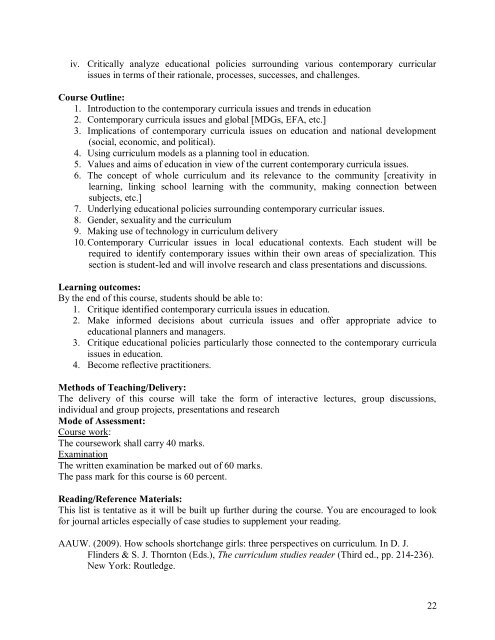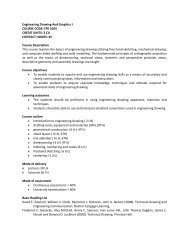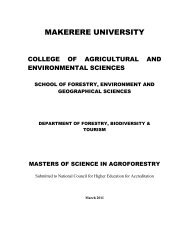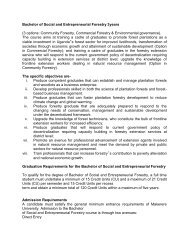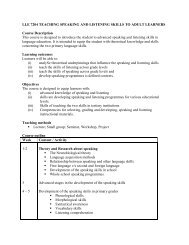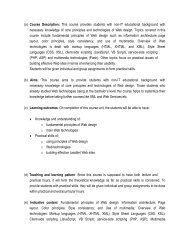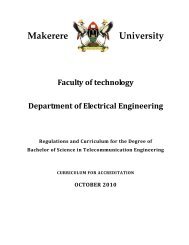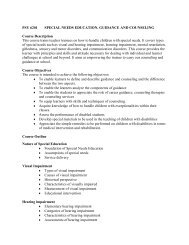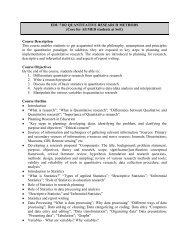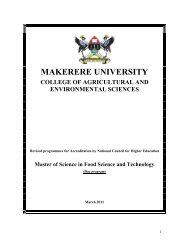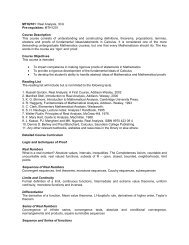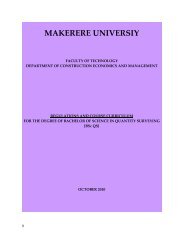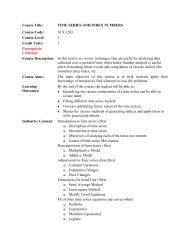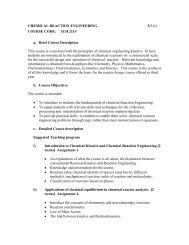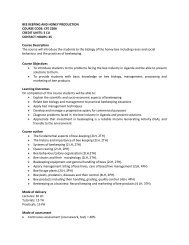MAKERERE UNIVERSITY - Office of the Academic Registrar ...
MAKERERE UNIVERSITY - Office of the Academic Registrar ...
MAKERERE UNIVERSITY - Office of the Academic Registrar ...
You also want an ePaper? Increase the reach of your titles
YUMPU automatically turns print PDFs into web optimized ePapers that Google loves.
iv. Critically analyze educational policies surrounding various contemporary curricularissues in terms <strong>of</strong> <strong>the</strong>ir rationale, processes, successes, and challenges.Course Outline:1. Introduction to <strong>the</strong> contemporary curricula issues and trends in education2. Contemporary curricula issues and global [MDGs, EFA, etc.]3. Implications <strong>of</strong> contemporary curricula issues on education and national development(social, economic, and political).4. Using curriculum models as a planning tool in education.5. Values and aims <strong>of</strong> education in view <strong>of</strong> <strong>the</strong> current contemporary curricula issues.6. The concept <strong>of</strong> whole curriculum and its relevance to <strong>the</strong> community [creativity inlearning, linking school learning with <strong>the</strong> community, making connection betweensubjects, etc.]7. Underlying educational policies surrounding contemporary curricular issues.8. Gender, sexuality and <strong>the</strong> curriculum9. Making use <strong>of</strong> technology in curriculum delivery10. Contemporary Curricular issues in local educational contexts. Each student will berequired to identify contemporary issues within <strong>the</strong>ir own areas <strong>of</strong> specialization. Thissection is student-led and will involve research and class presentations and discussions.Learning outcomes:By <strong>the</strong> end <strong>of</strong> this course, students should be able to:1. Critique identified contemporary curricula issues in education.2. Make informed decisions about curricula issues and <strong>of</strong>fer appropriate advice toeducational planners and managers.3. Critique educational policies particularly those connected to <strong>the</strong> contemporary curriculaissues in education.4. Become reflective practitioners.Methods <strong>of</strong> Teaching/Delivery:The delivery <strong>of</strong> this course will take <strong>the</strong> form <strong>of</strong> interactive lectures, group discussions,individual and group projects, presentations and researchMode <strong>of</strong> Assessment:Course work:The coursework shall carry 40 marks.ExaminationThe written examination be marked out <strong>of</strong> 60 marks.The pass mark for this course is 60 percent.Reading/Reference Materials:This list is tentative as it will be built up fur<strong>the</strong>r during <strong>the</strong> course. You are encouraged to lookfor journal articles especially <strong>of</strong> case studies to supplement your reading.AAUW. (2009). How schools shortchange girls: three perspectives on curriculum. In D. J.Flinders & S. J. Thornton (Eds.), The curriculum studies reader (Third ed., pp. 214-236).New York: Routledge.22


